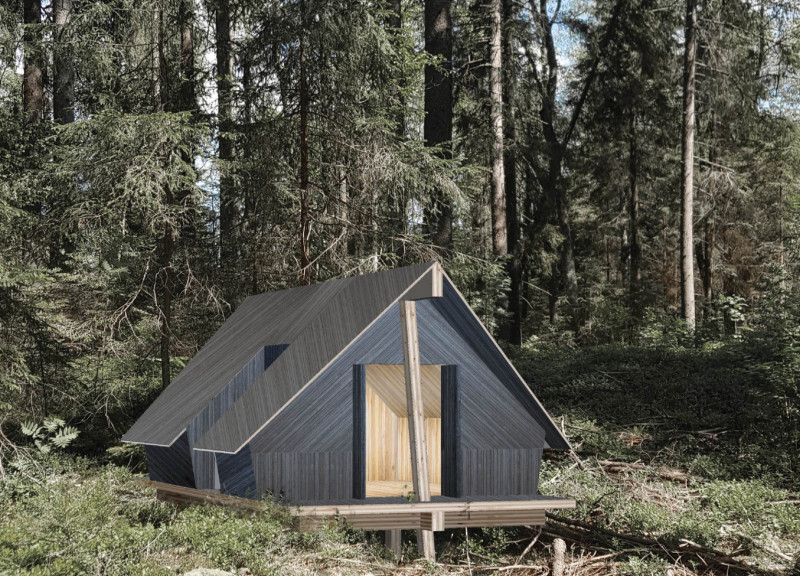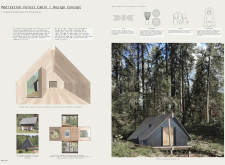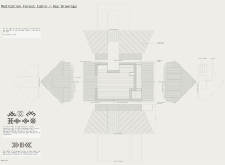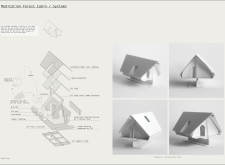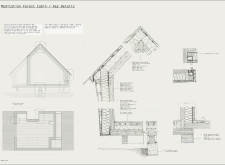5 key facts about this project
The Meditation Forest Cabin, designed by architects Gladys Ching and Mika Zacharias, provides a peaceful space for meditation and self-reflection within the natural setting of Latvia. The cabin reflects an understanding of cultural narratives from Latvian folklore and incorporates elements of Zen Buddhist philosophy. The overall design aims to connect occupants with the surrounding landscape while supporting a calm and restorative experience.
Architecture Concept
The architecture draws inspiration from traditional Latvian building methods, particularly the standard homestead structure. It features high-pitched roofs, deep eaves, and walls that are lower in height, allowing the cabin to blend into its environment. The design fosters open spaces that help create a tranquil atmosphere conducive to meditation and relaxation, promoting a strong bond with nature.
Materials
The main material used in the construction is cross-laminated timber, specifically birch. This choice supports sustainable building practices while providing durability and warmth. The timber's natural qualities enhance the interior spaces, creating a welcoming and pleasant atmosphere. Choosing birch CLT also allows for efficient building processes, reinforcing the intention to respect both the craft of construction and the ecological context.
Design Outcomes
The layout of the cabin enhances its functionality while remaining responsive to the surrounding environment. Open floor plans create flexibility within the space, accommodating both solitary practice and group activities such as tea ceremonies. This design encourages a smooth transition between the indoors and outdoors, inviting occupants to engage with the natural world.
Cultural symbols, particularly those associated with the goddess Laima, are thoughtfully integrated throughout the cabin, adding layers of meaning to the design. These elements create a deeper connection to local heritage and invite personal reflection, enhancing the overall experience of the space. Each detail contributes to an environment that supports meditation and personal growth.


